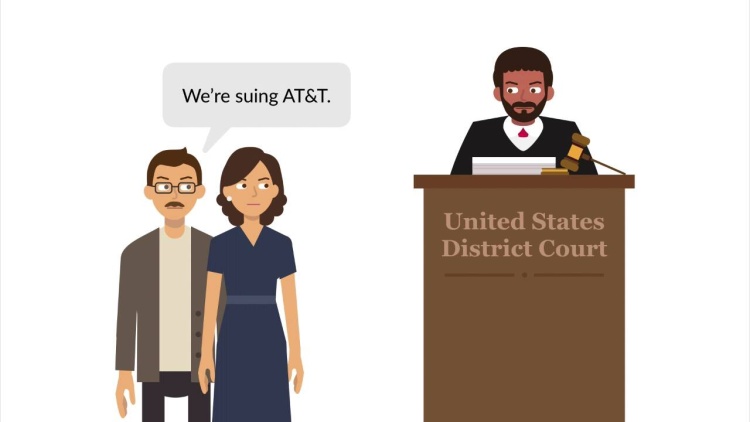AT&T Mobility, LLC v. Concepcion
United States Supreme Court
563 U.S. 333, 131 S. Ct. 1740, 179 L. Ed. 2D 742 (2011)
- Written by Craig Conway, LLM
Facts
Vincent and Liza Concepcion (plaintiffs) purchased cellular phones and service from AT&T Mobility, LLC (AT&T) (defendant) after seeing an advertisement that offered free phones. Although the Concepcions were not charged for the phones, they were charged $30.22 in sales tax. Included in the service agreement was an arbitration provision that required all disputes between the parties to be resolved by an arbitrator and prohibited arbitration in the form of a class action. The agreement additionally allowed AT&T to make unilateral amendments to the contract at any time, which it did. The Concepcions brought suit against AT&T in federal district court as part of a putative class action, and the class collectively alleged that AT&T had engaged in false advertising and fraud by charging sales tax on phones it advertised as free. AT&T filed a motion to compel arbitration under the terms of the agreement with the Concepcions. The district court denied AT&T’s motion based on a California Supreme Court case, Discover Bank v. Superior Court, 36 Cal. 4th 148 (2005), and found that the arbitration provision was unconscionable because AT&T had not shown that bilateral arbitration adequately substituted for the deterrent effects of class actions. The United States Court of Appeals for the Ninth Circuit affirmed, and the US Supreme Court granted certiorari to review.
Rule of Law
Issue
Holding and Reasoning (Scalia, J.)
Concurrence (Thomas, J.)
Dissent (Breyer, J.)
What to do next…
Here's why 907,000 law students have relied on our case briefs:
- Written by law professors and practitioners, not other law students. 47,100 briefs, keyed to 996 casebooks. Top-notch customer support.
- The right amount of information, includes the facts, issues, rule of law, holding and reasoning, and any concurrences and dissents.
- Access in your classes, works on your mobile and tablet. Massive library of related video lessons and high quality multiple-choice questions.
- Easy to use, uniform format for every case brief. Written in plain English, not in legalese. Our briefs summarize and simplify; they don’t just repeat the court’s language.





